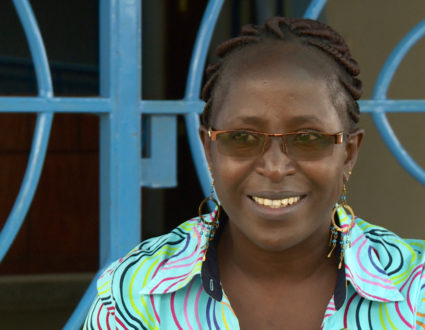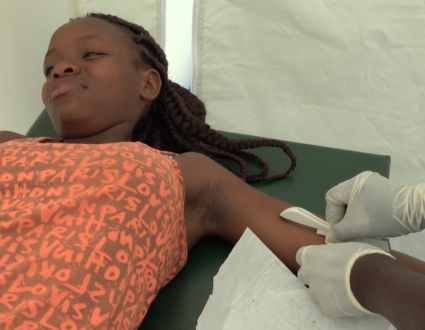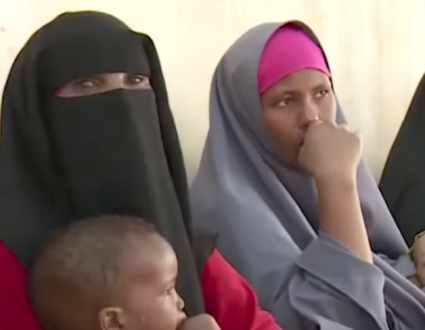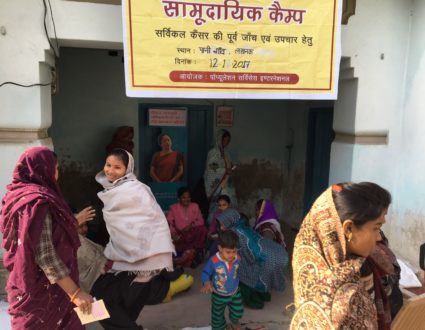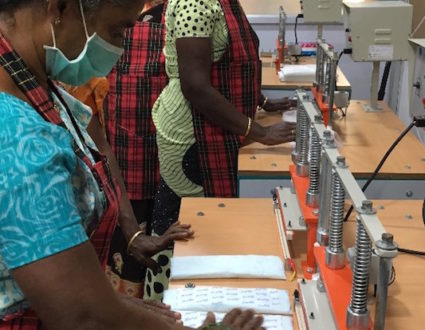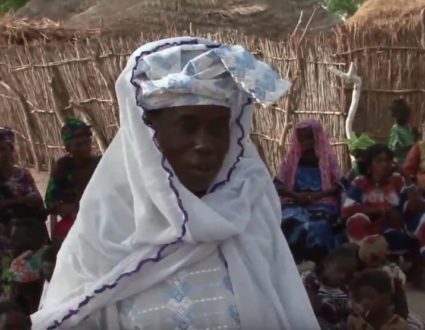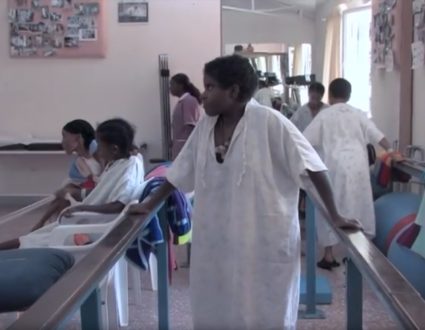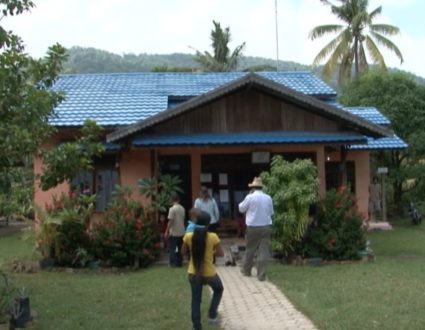JUDY WOODRUFF: Next: bringing care to women in a country whose medical facilities, already scarce, were destroyed by years of civil war.
Special correspondent Fred de Sam Lazaro reports on the mission of one woman in Somaliland. It’s part of his series Agents for Change.
She had a very easy delivery, had a delivery last night.
FRED DE SAM LAZARO: It was a pretty typical day at the Edna Adan Hospital. Three babies had just been born, a half-dozen high-risk women were in labor, several others were being treated for life-threatening illnesses, and at the center of it all, the hospital’s founder and namesake, Edna Adan.
EDNA ADAN, Founder, Edna Adan University Hospital: These are the kind of women I built the hospital for anyway, anemic, a woman who has had previous complications, a woman who has a scar, a woman who has lost babies before.
FRED DE SAM LAZARO: What is especially remarkable is where this is all taking place, in Hargeisa, the capital of Somaliland, an enclave that declared its independence three decades ago from the war-torn Somalia, but is not recognized by the rest of the world.
The region suffers from some of the world’s highest rates of infant and maternal mortality. Adan was born here 79 years ago, the daughter of a prominent physician. At 17, she won a scholarship to study in England, becoming a midwife. She returned to Somalia, marrying a politician who would become prime minister. She’s seen with him here and next to President Lyndon Johnson at a White House reception.
She fled Somalia’s civil war in the 1980s. When Edna Adan returned to her native Hargeisa, the city lay in ruin from years of war. She was given a plot of land that had been used as a burial ground and on it laid the foundation for rebuilding the city’s health care system.
EDNA ADAN: Most doctors had fled. Some had been killed.
FRED DE SAM LAZARO: Adan had worked for the U.N. while in exile and used her savings and a fund-raising campaign to build what had been a lifelong dream: a nonprofit hospital and nursing school designed to specifically address the health needs of women.
In 2002, she opened the 45-bed hospital, which has since doubled in size and grown to include an outpatient clinic and two surgical theaters.
EDNA ADAN: We have delivered 20,000 babies in the past 15 years. And we have the lowest maternal mortality. We’re a quarter of the national rate. And it’s still too many. Many of those women shouldn’t have been lost, shouldn’t have died. But they bring them too late.
FRED DE SAM LAZARO: Another factor in the high rate of maternal death and various complications in labor is female genital mutilation. Nearly 95 percent of young girls in this country are thought to be subjected to genital cutting.
Adan has become an outspoken critic of the practice.
EDNA ADAN: My mission now is to talk to fathers. I am blue in the face talking to mothers.
FRED DE SAM LAZARO: But it’s the mothers who are taking the daughters to have this done, right?
EDNA ADAN: If a father says no and puts his foot down, there will be a chance that some of these girls will be saved.
Space, your child, happy, clean, healthy.
FRED DE SAM LAZARO: She has also become a vocal advocate for family planning in this conservative Islamic society. Adan planned to counsel this patient who was rushed here by her husband the previous night, hemorrhaging badly after she miscarried what would have been her seventh baby.
EDNA ADAN: The first advice that we will tell her when she comes back from a — before she goes home, is not to get pregnant.
FRED DE SAM LAZARO: Is she any way equipped to control that decision?
EDNA ADAN: That decision, we usually do with the husband, because, at a moment like that, he is somebody who almost lost a wife. He ran with her. He brought her here. His wife is alive. He doesn’t want to go through that again.
FRED DE SAM LAZARO: The hospital does offer limited family planning services, most frequently implantable contraceptives for women.
As Edna Adan’s reputation has grown, so has its mission. The hospital now treats men, and it brings in physicians and surgeons from the U.S. and other countries who volunteer to do specialized procedures, treating patients with cleft palate, and hydrocephalus, among other things, all free of charge.
EDNA ADAN: You see, they’re totally conjoined.
FRED DE SAM LAZARO: Sometimes, all the hospital can offer is compassion. This pair of eight-month-old twins, conjoined at the heart, were discharged from another hospital soon after they were born.
EDNA ADAN: They’re not going to find oxygen anywhere else. So whatever we can do palliatively, we will do. But surgery is totally out of the question.
FRED DE SAM LAZARO: So it’s palliative — palliative care until nature takes its course.
EDNA ADAN: Until nature takes — yes, god makes that decision. I don’t want to be the one that switches it off.
FRED DE SAM LAZARO: In a region where roads are poor to nonexistent, getting to the Hargeisa hospital can be daunting.
So, Adan has a team of midwives and nurses to treat women and children in the vast rural areas of Somaliland.
Khadan Abdilahi was in the first class of midwives to graduate. We watched as she helped vaccinate newborn babies at a small clinic in Abdi Iidan (ph), and then teach a prenatal class on nutrition for these pregnant women at a refugee camp.
KHADAN ABDILAHI, Midwife: Edna is a role model for myself.
FRED DE SAM LAZARO: Edna is a role model for you?
Thirty-year-old Dr. Shukri Mohamed Dahir was also trained as a nurse and midwife by Edna Adan. She went on to become a physician and surgeon, and is now back practicing at the Adan Hospital.
She says, initially, patients weren’t sure about the idea of a woman in that job.
DR. SHUKRI MOHAMED DAHIR, Surgeon, Edna Adan Hospital: When I was dealing with an emergency case, they used to say, oh, you are a female and you’re going to operate? That’s very — maybe she will die. That idea still exists. But it’s not as strong as when I graduated.
FRED DE SAM LAZARO: Although she’s groomed new doctors and midwives, Edna Adan, almost 80, has not chosen a successor.
EDNA ADAN: I have 800 graduates from various courses. I have thousands of people whose lives I have touched. And they’re all my children. And I’m still looking for someone who is crazy enough to say: I will look after them for you, the way you did.
FRED DE SAM LAZARO: If only for that reason, Edna Adan says, she has no plans to slow down anytime soon.
For the PBS NewsHour, I’m Fred de Sam Lazaro in Hargeisa, Somaliland.
JUDY WOODRUFF: And what an inspiration she is.
Fred’s reporting is part of the Under-Told Stories Project at University of St. Thomas in Minnesota.
Matriarch of Somaliland
Somaliland, a region of Somalia that lay in ruin from years of war, suffers some of the world’s highest rates of infant and maternal mortality. But 15 years ago, Edna Adan fulfilled a lifelong dream by building a nonprofit hospital and nursing school to address the health needs of women.
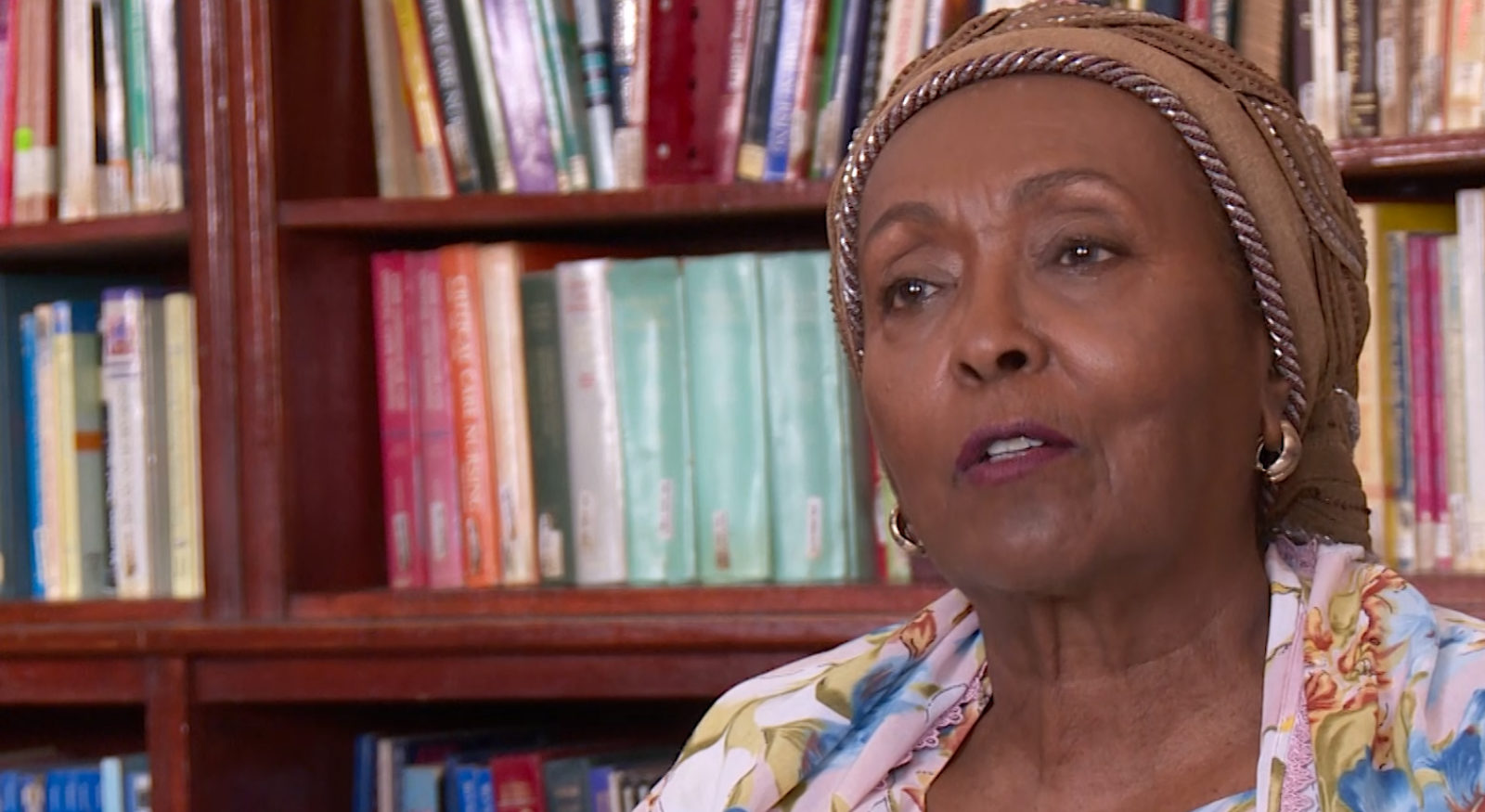
Edna Adan
“We have delivered 20,000 babies in the past 15 years. And we have the lowest maternal mortality. We’re a quarter of the national rate. And it’s still too many. Many of those women shouldn’t have been lost, shouldn’t have died. But they bring them too late.”
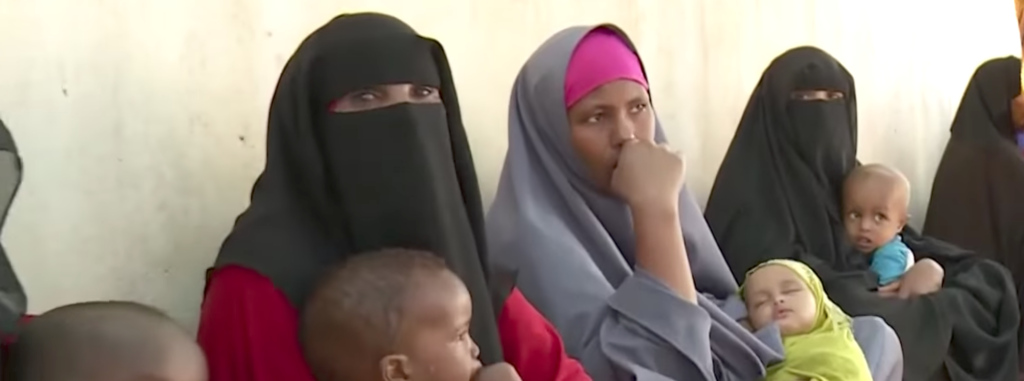
Passing the mission forward
“I have 800 graduates from various courses. I have thousands of people whose lives I have touched. And they’re all my children. And I’m still looking for someone who is crazy enough to say: I will look after them for you, the way you did.”


